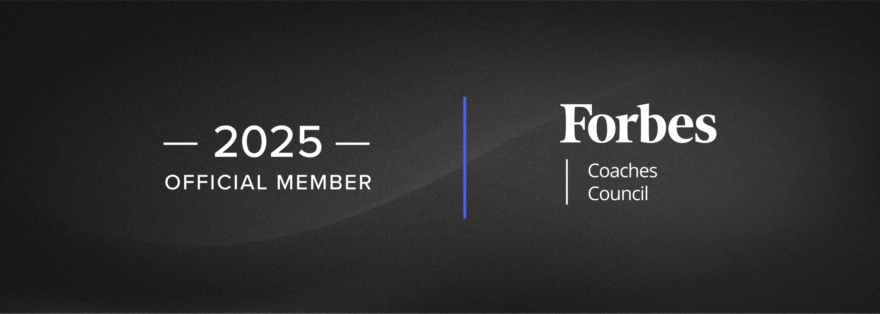Boosting productivity doesn’t always demand expensive tools or cutting-edge technology; often, the most impactful changes come from simple, intentional shifts in mindset and daily habits.
This article provides actionable strategies to help individuals maximize their efficiency and effectiveness, focusing on time-tested principles and easy-to-implement behaviours. By addressing common productivity pitfalls—such as poor prioritization, distractions, and burnout—these steps empower readers to take control of their time and energy. Whether you’re a professional juggling competing demands or an entrepreneur looking to optimize performance, this guide offers practical advice for achieving more with less effort, unlocking sustained success in both work and life.

In my article “Productivity: It All Comes Down To The Pilot In The Box!” I unpacked the trinity of mindset, habits and behaviours versus the plethora of productivity tools and apps available on the market. I am not saying that tools can’t be helpful, but without the right mindset, habits and behaviour, any app or tool is just another tool.
In this follow-up article, I share practical advice for boosting your productivity, and unlike newfangled apps and tools, they won’t cost you a penny. Better still, you can implement them immediately.
Set clear objectives and priorities.

Why: Clarity is the bedrock of productivity, be it personal development or business management. Ambiguity is the enemy of productivity. Busyness does not achieve your objectives; it’s a meaningless waste of time.
How: A clear goal or vision of success helps focus your energies on what truly matters and prevents wasting time on less important tasks.
The SMART goal technique (specific, measurable, achievable, relevant and time-bound) is powerful. Focus first on the “SMT”; resolving the SMT gives you a specific goal, precise measures and a timeline by which you will deliver. This is clarity.
The “A” tests confidence. Confidence is a two-sided coin. On the one side, it tests your belief that you can achieve your goal. The other side tests whether you believe what you’re aiming to achieve is possible. You do not need supreme confidence; you just need more belief than doubt.
The “R” tests importance. I call it your “bothered-o-meter.” A goal you’re bothered about will register highly and sustain you when things become challenging. However, choose something you’re less bothered about; if it doesn’t inspire you or becomes challenging, you will likely switch to something more interesting.
Clarity is essential for prioritisation. Critical thinking tools help you remove bias and preference from decisions. We all prefer to do things we enjoy or are easy, but often, it’s the complex tasks or the things we least enjoy that will move us forward toward our goal.
Knowing what you want, why you want it and when you need it enables you to prioritise. The Eisenhower Matrix, which separates tasks based on urgency and importance, can be invaluable. Another method is the ABCD prioritisation technique, where tasks are categorised from most to least critical.
Establish routine and structure.
Why: Our brains respond well to habits and patterns; it’s how we’re wired. Routines reduce the number of decisions you make every day, which conserves mental energy for more critical tasks. Without this cognitive energy saving, we suffer “decision fatigue,” where the quality of decisions deteriorates after lengthy decision-making sessions.
How: Building a routine involves setting specific times for various activities, such as work, exercise, meals, and relaxation. Time-blocking is a practical method where you allocate blocks of time for different tasks, creating a visual structure for your day. This approach can help maintain focus on the task at hand and reduce the tendency to multitask, which is often less effective. Don’t forget to include breaks and leisure activities in your schedule to prevent burnout.

Eliminate distractions.
Why: In a world where information is constantly at our fingertips, distractions are a significant barrier to productivity. Take social media; these platforms are notorious distractors engineered to keep us on the channel by triggering our biochemistry.
Receive a like, comment or any form of positive interaction, and it stimulates dopamine release. This release promotes pleasure and satisfaction, like the gratification you might get from eating food you enjoy or winning a prize. The intermittent and unpredictable nature of these social rewards creates a pattern like gambling, where the anticipation of a reward keeps users coming back.
Email, Teams, Slack and other systems can also release dopamine, but they can also trigger cortisol. Cortisol is released when we feel stressed. High volumes of email and system notifications can cause anxiety, which can, ironically, drive us to check more.
Distractors’ fracture concentration significantly decreases the quality and quantity of work produced. Switching between tasks inevitably means some of our attention remains with the previous task, reducing our ability to entirely focus on the new task.
How: Identifying and mitigating distractions is critical. Tools like Focus@Will, which offers music designed to aid concentration, or apps like Freedom and Forest, which block distracting websites, can be helpful.
Setting specific times for checking emails and social media, rather than constantly responding to notifications, can help maintain focus. Creating a dedicated workspace free from clutter and potential interruptions can also enhance concentration.

Cultivate a growth mindset.
Why: A growth mindset, a concept popularised by psychologist Carol Dweck in her book Mindset, centres on the belief that we can all develop our abilities and intelligence.
This perspective encourages resilience, a passion for learning and a willingness to confront challenges, all essential for personal and professional growth. Viewing failures not as insurmountable setbacks but as opportunities for learning and development fosters a positive attitude toward challenges.
How: Cultivating a growth mindset involves several practices. Keeping a journal can be a powerful tool for self-reflection and tracking progress. Embrace criticism, and choose to see it as valuable feedback that will help you grow.
Adopting a mindset that sees challenges as the vehicle to stretch and grow will boost resilience. Celebrate small wins to help maintain motivation. View setbacks as steps on the journey; ask what can be learned from the experience rather than viewing it as a failure.
Conclusion
The secret is harnessing proven tools to help our “pilot” make better choices, from what we focus on and deciding what tasks are important to creating the space to get stuff done. Our mindset will determine whether we challenge ourselves, repeat the same mistakes, learn, and grow on our journey to becoming highly productive.
Productivity is more than choosing the right tools. With clear objectives and priorities, productive routines and structures, eliminating distractions and cultivating a growth mindset, you can unlock the pilot in the box.
This article first appeared on Forbes.com on 13th December 2023
Ricky has been a regular contributor to the Forbes Councils since 2023, where he shares his perspectives on all things leadership, change, culture and productivity, all with Thinking Focus’ unique perspective on metacognition, or as we prefer to say, thinking about thinking.


